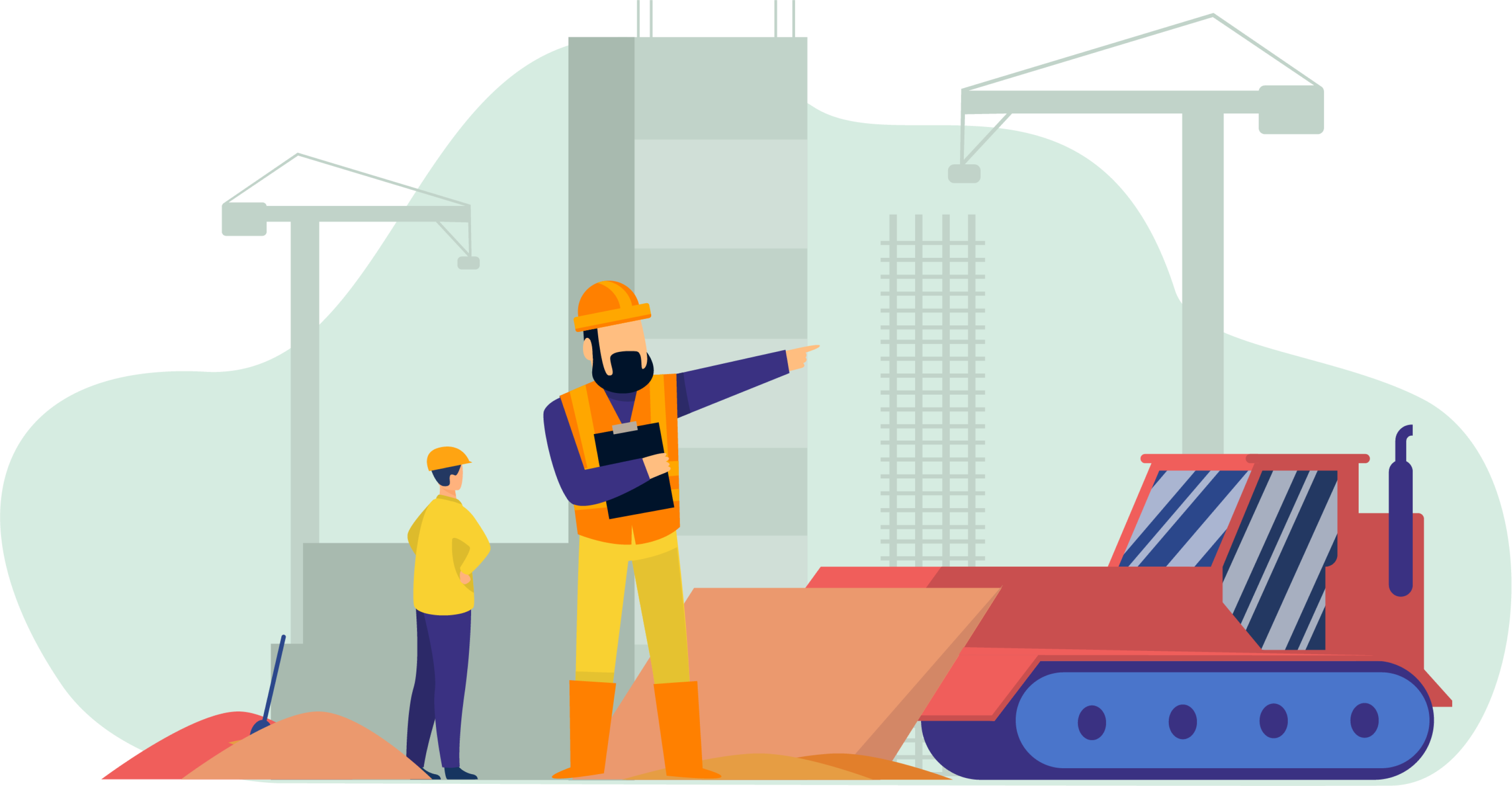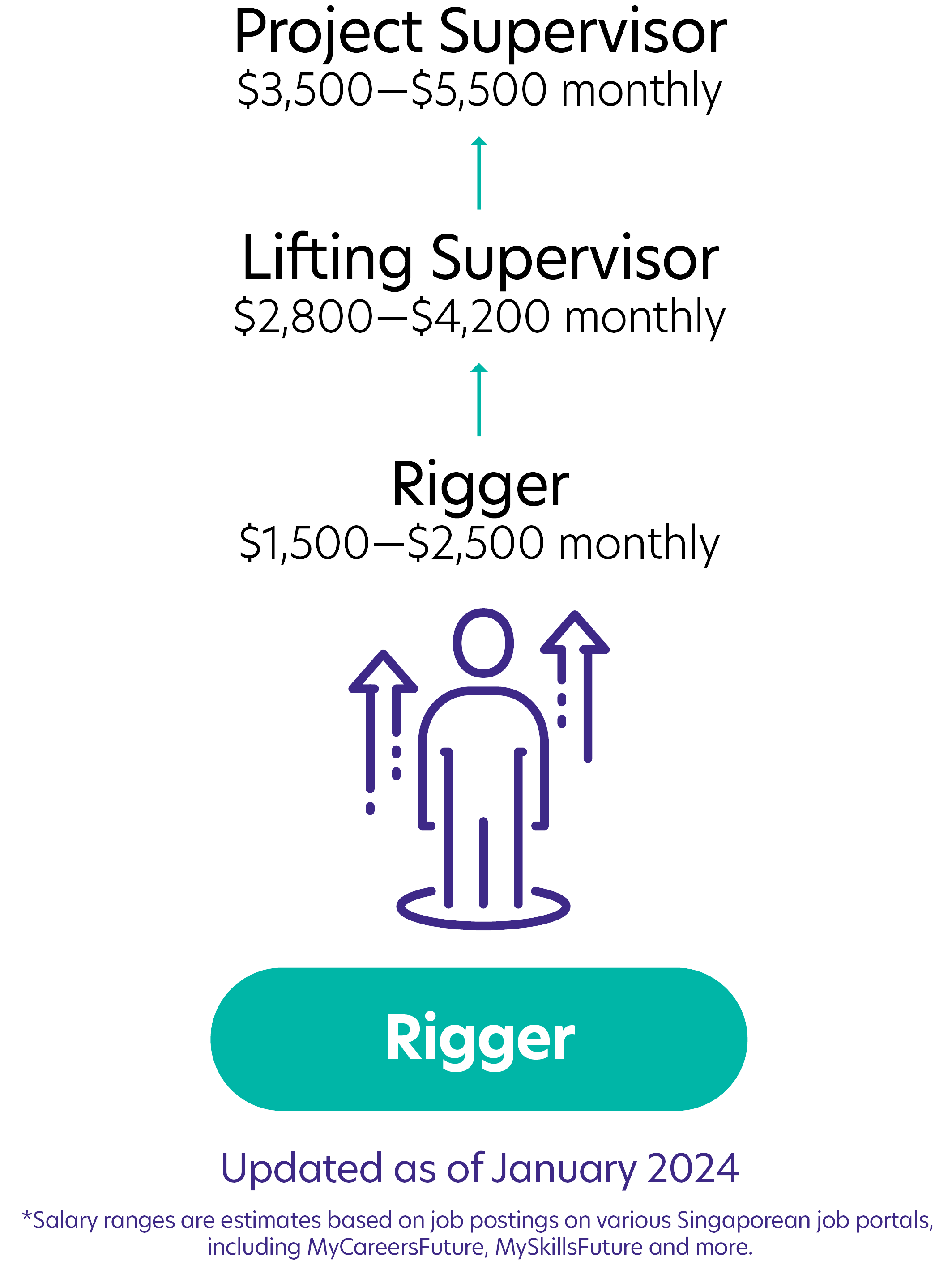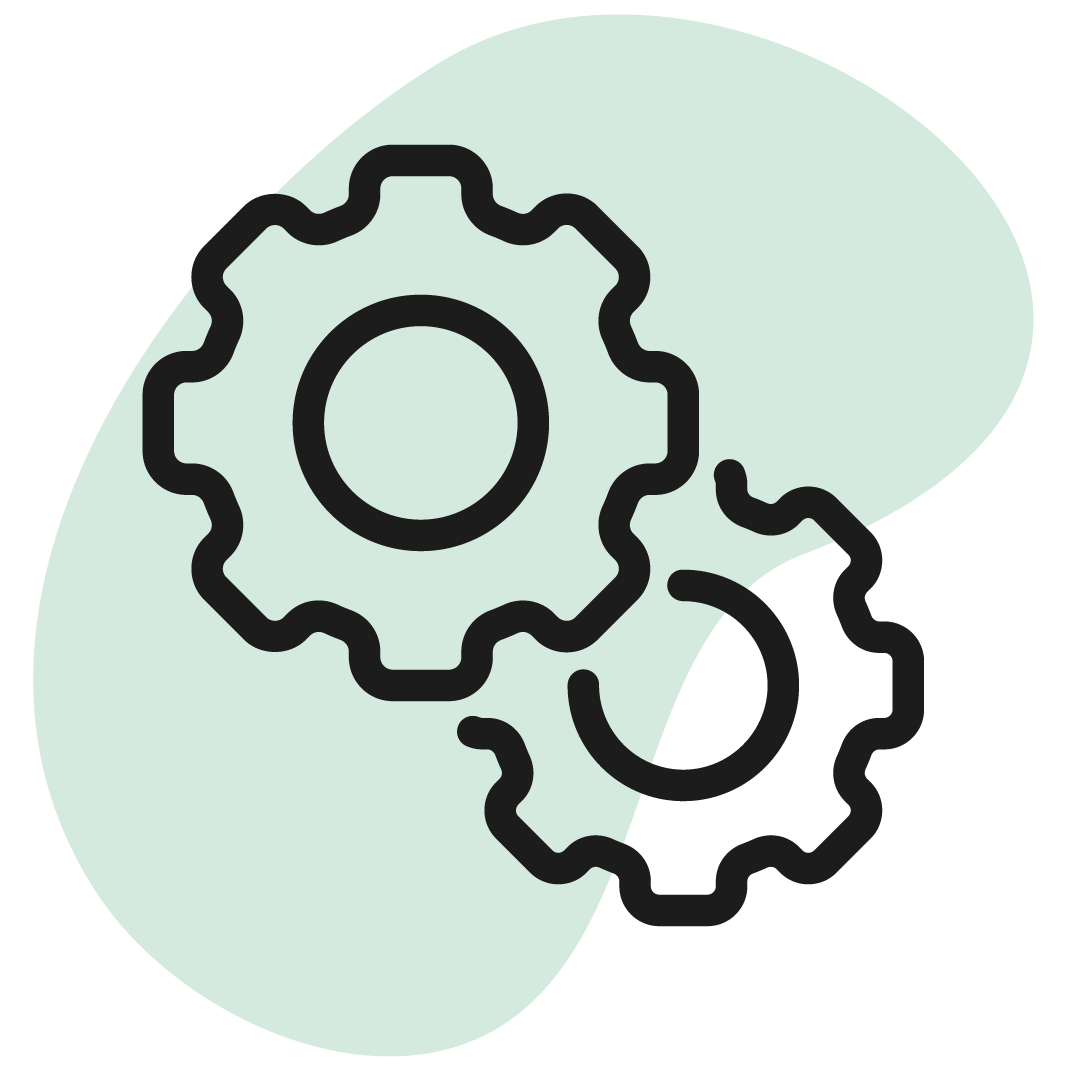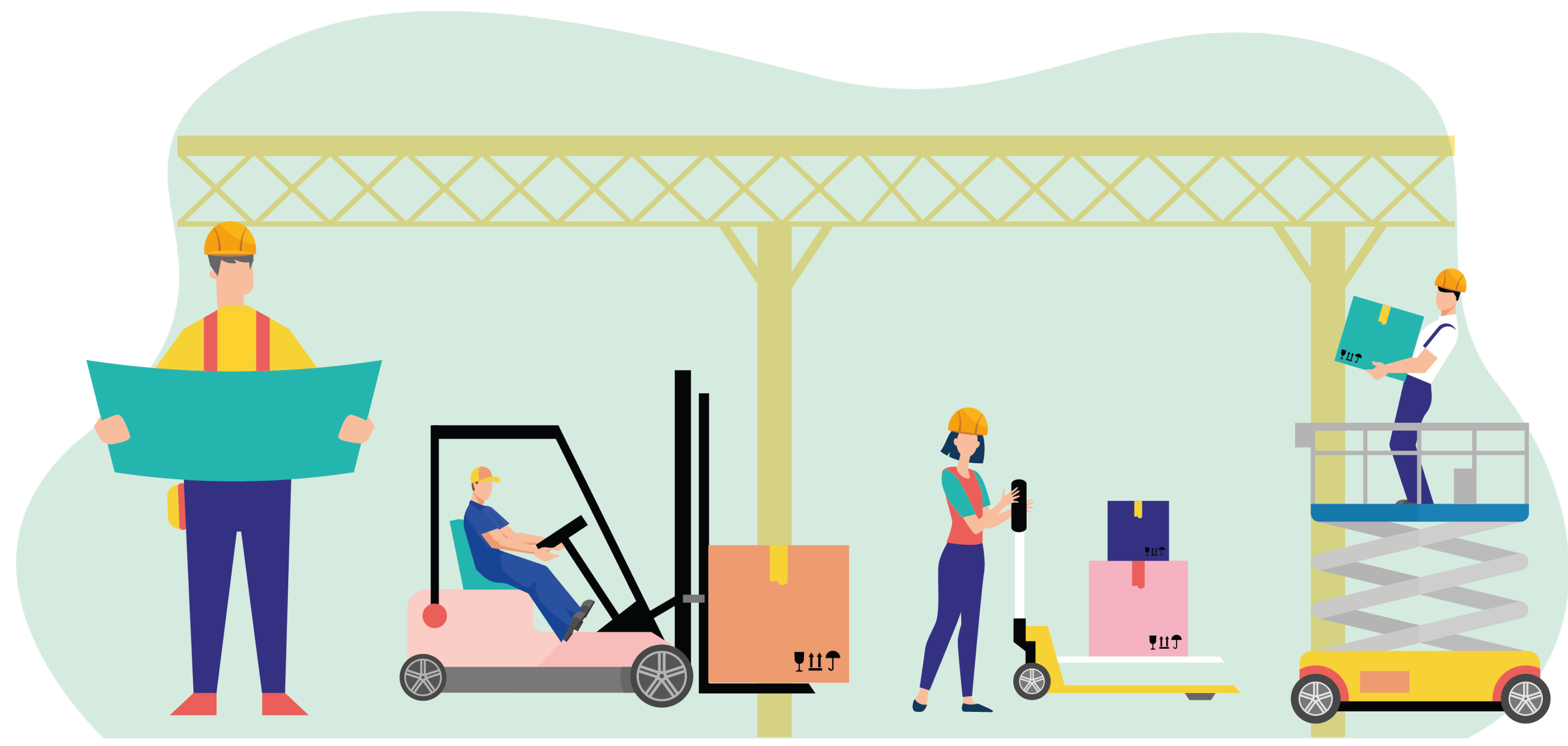
Riggers work with Lifting equipment, conducting regular upkeep and ensuring the equipment's safe usage. They are skilled in setting up and operating hoists, cranes, and shackles, understanding load dynamics to prevent accidents.
Rigger Job Description
- Specialise in Lifting equipment operations and conduct regular system checks and upkeep.
- Utilise communications devices to work with various parties for safe lifting operations.
- Adhere to health and safety guidelines to ensure the safety of self and others.
- Work with tricky shipments, such as goods that are hazardous or fragile.
- Keep up to date and be familiar with the latest technology and equipment.
- Plan and execute complex lifting and moving strategies for oversized, heavy, or awkward loads, ensuring minimal risk and maximum efficiency.
- Inspect and maintain rigging equipment, including cables, ropes, straps, and hooks, to prevent equipment failure and accidents.
Note
A Lifting team consists of a Lifting Supervisor, a Crane Operator, and a Rigger. Seamless communication and teamwork are key to ensuring a safe Lifting operation!
What you should know about Rigger jobs in Singapore
Nature of Work
You will ensure the safety of crew members and equipment by securing heavy loads as Riggers, promoting safety in critical Lifting operations.Key Advice
Rigging is tough—facing harsh conditions, heat, standing long hours, and lifting heavy loads. Maintaining a healthy mind and body will be crucial.-
Entry RequirementsEntry Requirements
- Most Riggers have to obtain the Workforce Skills Qualification (WSQ) Performing Rigger and Signalman Tasks certificate. You will learn several rigging techniques to suit various types of loads.
- Prior experience in Construction, Manufacturing, or any industry involving heavy lifting is advantageous, providing practical insights into the demands and safety precautions of rigging operations.
- Knowledge of safety regulations and standards in Singapore, including those set by the Ministry of Manpower (MOM), to ensure compliance with national safety guidelines.
- Familiarity with different types of Lifting equipment and materials, including their capacities and limitations, to select the appropriate tools for each job.
-
Possible PathwayPossible Pathway

Skills you need to pursue a Rigger career in Singapore
 Hard Skills
Hard Skills
Knowledge of Rigging Techniques
Possesses mastery in securing and moving loads according to safety standards.Understanding of Hazards
Understands the risks in Lifting tasks and displays heightened awareness to ensure safety.Knowledge of Load Dynamics
Possesses full knowledge and understanding of how loads behave during lifting for secure handling.Communication
Capable of effectively exchanging information for safe and efficient operations.Teamwork
Ability to collaborate and work with others effectively in Lifting operations.Problem-Solving
Ability to find practical and innovative solutions to issues arising during rigging tasks.Related Job Roles
Explore Other Programmes
Browse AllYou have bookmarked your first item!
Find it in My Discoveries with insights on your interests!



